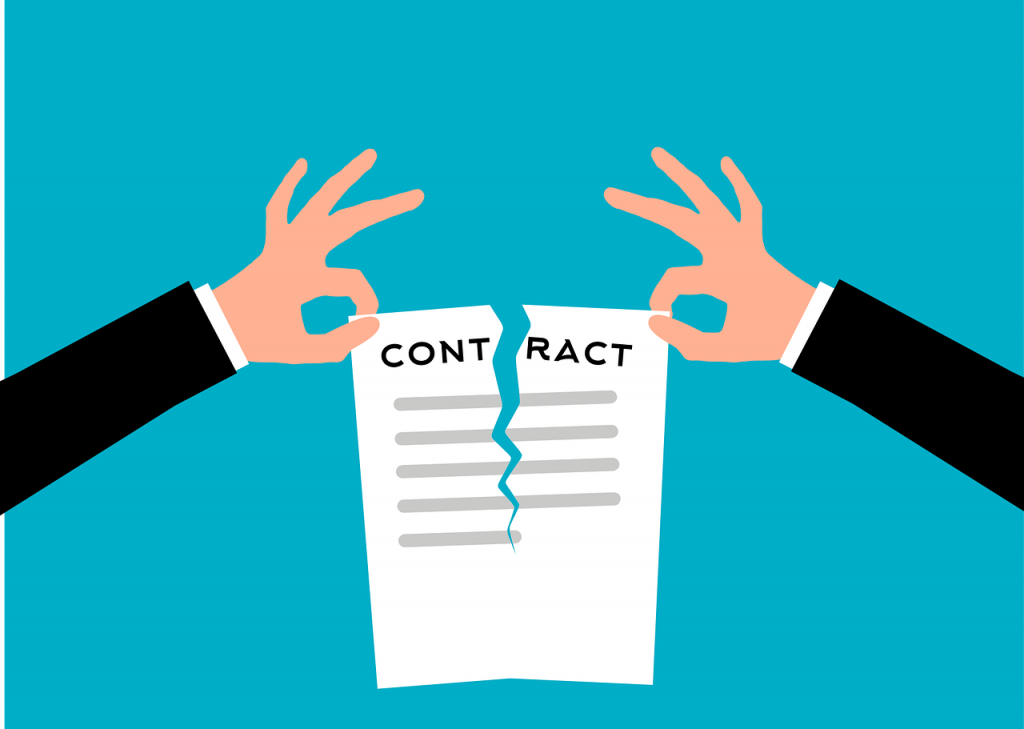In the ever-evolving world of commercial real estate, boundary disputes can often arise, posing significant legal challenges for property owners. Understanding the intricacies of these disputes is crucial to resolving them effectively and protecting your investment. In this article, we will explore the complexities of Utah commercial real estate boundary disputes and provide insight into the legal issues surrounding them. Whether you find yourself facing a potential dispute or simply seeking to expand your knowledge, this comprehensive guide aims to equip you with the necessary information to navigate this terrain. Should you require further assistance, contacting a trusted commercial real estate lawyer like Jeremy Eveland can provide invaluable guidance and support.
Understanding Commercial Real Estate Boundary Disputes
Commercial real estate boundary disputes can be complex legal issues that arise between two or more parties regarding the ownership or use of a property’s boundaries. These disputes can have significant financial and legal consequences, making it essential for individuals involved in commercial real estate transactions to have a clear understanding of the causes, legal remedies, and preventative measures related to boundary disputes.
What are commercial real estate boundary disputes?
Commercial real estate boundary disputes occur when there is a disagreement or conflict between parties regarding the location, extent, or use of boundaries on a commercial property. These disputes often arise due to conflicting surveys, ambiguities in legal descriptions, or disagreements over the interpretation of easements or boundary agreements.
Boundary disputes can occur at any stage, from the initial purchase of a property to subsequent development, ownership transfers, or changes in land use. They can involve adjacent property owners, tenants, developers, and even homeowner associations or commercial associations.
Common causes of boundary disputes in commercial real estate
Several factors can contribute to the emergence of boundary disputes in commercial real estate. Some common causes include:
-
Survey discrepancies: Differing surveys or conflicting property boundary lines can lead to disputes over property ownership or proper usage. Errors in surveying techniques, misinterpretation of legal descriptions, or outdated surveys can all contribute to these discrepancies.
-
Easements and encroachments: Disagreements can arise when one party’s property encroaches upon another’s or when there are disputes related to the rightful use or maintenance of easements. Easements allow for specific rights of access or use of another person’s property, often leading to conflicts over boundaries.
-
Boundary agreements: Lack of clarity or disputes concerning the terms and conditions of boundary agreements between adjacent property owners can also give rise to boundary disputes. Ambiguous language or unfulfilled obligations within these agreements can lead to conflicts regarding the boundaries.
-
Adverse possession: Adverse possession occurs when an individual gains legal ownership of a property by openly occupying it for a specific period without the permission of the legal owner. Disputes can arise when adverse possession claims are made, challenging the boundaries and ownership of commercial properties.
-
Legislative changes and regulations: Changes in local or state zoning laws, development regulations, or property use designations can lead to conflicts over boundary lines. These disputes often arise when property owners or developers seek to utilize their land in ways that are inconsistent with the newly imposed regulations.
Understanding the common causes of boundary disputes can help commercial property owners and stakeholders anticipate potential issues and seek appropriate legal remedies when necessary.
Legal Remedies for Commercial Real Estate Boundary Disputes
When a boundary dispute arises in commercial real estate, there are several legal remedies available to resolve the conflict. The choice of remedy often depends on the specific circumstances of the dispute and the desired outcome of the parties involved.
Resolution through negotiation and mediation
Before pursuing more formal legal action, it is often helpful for parties involved in a boundary dispute to explore resolution options through negotiation and mediation. This approach allows each party to have a voice in the decision-making process and provides an opportunity for compromises and mutually acceptable solutions.
Mediation, facilitated by a neutral third party, can be particularly useful in resolving complex boundary disputes, as it encourages open communication, explores underlying interests, and seeks to maintain positive relationships between the parties involved. If successful, negotiation and mediation can result in a mutually agreed-upon resolution that avoids the time, expense, and uncertainty of litigation.
Seeking court intervention: Litigation and arbitration
If negotiation and mediation fail to resolve the boundary dispute, the parties may need to seek court intervention to obtain a legal resolution. Litigation involves presenting the dispute before a judge who will make a final decision after hearing evidence and legal arguments from both sides. Arbitration, on the other hand, involves presenting the dispute before one or more impartial individuals who act as private judges and make a binding decision.
Litigation and arbitration can be effective ways to resolve boundary disputes, as they provide a structured and formal process for presenting evidence, analyzing legal arguments, and obtaining a binding decision. However, these methods can also be costly, time-consuming, and may strain relationships between the parties involved. It is crucial to consult with an experienced commercial real estate attorney to determine the most appropriate legal course of action.
Understanding Utah property laws and regulations
When dealing with commercial real estate boundary disputes in Utah, it is essential to have a comprehensive understanding of the state’s property laws and regulations. Utah’s property laws specify how boundaries are established, defined, and protected.
Working with an attorney who specializes in commercial real estate law in Utah can ensure that all legal steps and requirements are properly addressed throughout the resolution process. An experienced attorney can guide individuals through Utah-specific legal procedures, provide insight into relevant case law and statutes, and help navigate any unique aspects of Utah property law.
By understanding the legal remedies available and the specific laws and regulations governing commercial real estate boundaries in Utah, parties can better protect their rights, mitigate their risks, and achieve a fair and equitable resolution to their boundary dispute.

Hiring an Experienced Commercial Real Estate Attorney
Given the complexities and potential consequences of commercial real estate boundary disputes, obtaining legal representation from an experienced attorney is crucial. A skilled attorney specializing in commercial real estate law can guide clients through the dispute resolution process, protect their rights, and advocate for their best interests.
The importance of legal representation
Commercial real estate attorneys possess the knowledge and expertise necessary to navigate the intricacies of boundary disputes. They can help clients understand their legal rights and obligations, evaluate the strengths and weaknesses of their case, and identify the most appropriate legal remedies.
Additionally, attorneys with experience in commercial real estate law can provide clients with guidance on strategic negotiation tactics, mediation, or litigation approaches. They can also ensure that all legal documentation and filings comply with the relevant laws and regulations, avoiding any potential pitfalls that could jeopardize a successful resolution.
Factors to consider when choosing a commercial real estate attorney
When selecting a commercial real estate attorney to handle a boundary dispute, it is important to consider several factors:
-
Experience and expertise: Look for an attorney with extensive experience specifically in commercial real estate law and boundary disputes. Familiarity with Utah’s property laws and regulations is particularly important for individuals dealing with boundary disputes in the state.
-
Reputation and track record: Research the attorney’s reputation in the legal community and their track record of successfully resolving boundary disputes. Online reviews, testimonials, and referrals from trusted sources can help gauge an attorney’s competence and professionalism.
-
Communication and accessibility: A responsive attorney who provides clear and frequent communication is essential. Ensure that the attorney is accessible and dedicated to promptly addressing any questions or concerns throughout the resolution process.
-
Fee structure: Discuss the attorney’s fee structure and billing practices upfront. Determine whether they offer transparent and reasonable pricing, whether it is a flat fee or hourly rate, and inquire about any additional costs that may be incurred.
By carefully considering these factors, individuals can find an attorney who is best suited to handle their commercial real estate boundary dispute and can guide them toward a favorable resolution.
How an attorney can help in resolving boundary disputes
An experienced commercial real estate attorney can assist in multiple ways when resolving boundary disputes. Some of the key ways an attorney can help include:
-
Providing legal analysis: Attorneys assess the strengths and weaknesses of a client’s case, conducting a thorough analysis of relevant laws and regulations, property documents, surveys, and other crucial evidence. This analysis provides a solid foundation for the resolution strategy.
-
Negotiation and mediation representation: Attorneys act as strong advocates for their clients during negotiation or mediation proceedings. They use their expertise to develop persuasive arguments, explore creative solutions, and protect their client’s interests.
-
Litigation representation: If the dispute escalates to litigation, attorneys guide their clients through every step of the legal process. They gather evidence, prepare legal documents, file motions, and present arguments in court, utilizing their knowledge of commercial real estate law to build a compelling case.
-
Collaborating with experts: Attorneys work closely with surveyors, appraisers, title companies, and other experts to gather vital information and support their client’s position. These collaborations can strengthen the case and provide valuable insight into technical aspects of the dispute.
-
Ensuring compliance with legal formalities: Attorneys manage all necessary legal formalities and ensure that all required filings, notices, and documents are properly prepared and submitted within the designated timeframes. This attention to detail helps clients avoid procedural errors that could undermine their case.
An attorney specializing in commercial real estate law can provide invaluable guidance and support throughout the resolution process, increasing the chances of achieving a favorable outcome in a boundary dispute.
The Role of Surveys and Title Insurance
Accurate surveys and title insurance play a critical role in protecting commercial real estate owners against potential boundary disputes. Understanding their importance and utilizing these resources can help mitigate risks and ensure clear property ownership.
Importance of accurate surveys in commercial real estate
Accurate surveys are essential in establishing and confirming the boundaries of a commercial property. They provide a detailed depiction of the property’s dimensions and physical features, including boundary lines, easements, and encroachments.
In commercial real estate transactions, conducting a professional land survey can help identify potential boundary issues before they escalate into disputes. A licensed surveyor will utilize advanced techniques and equipment to precisely measure and map a property, ensuring accuracy and compliance with legal requirements.
By investing in an accurate survey, commercial property owners can identify and resolve any boundary-related concerns at the outset, preventing potential disputes and protecting their investment.
How title insurance can protect against boundary disputes
Title insurance is another vital component in commercial real estate boundary disputes. It protects property owners and lenders from financial losses resulting from title defects or claims against the property’s ownership.
When purchasing commercial real estate, obtaining comprehensive title insurance is crucial to ensure that the property’s title is clear and free of any encumbrances or disputes. Title insurance companies conduct thorough searches and examinations of public records, identifying any potential boundary issues, liens, or other adverse claims. They then issue a title insurance policy that protects the owner or lender against financial losses should any of these issues arise.
In the event of a boundary dispute, title insurance can provide financial compensation or legal representation, depending on the circumstances. It offers peace of mind and reassurance that the property’s ownership and boundaries are protected, minimizing potential risks for commercial property owners.
Understanding the role of accurate surveys and title insurance and utilizing these resources can significantly reduce the likelihood of boundaries becoming a source of contention in commercial real estate transactions.

Analyzing Boundary Agreements and Easements
Boundary agreements and easements are legal documents that play a significant role in defining and clarifying commercial real estate boundaries. Understanding their purpose and legal implications can help prevent disputes and ensure transparent boundary-related obligations.
Understanding the role of boundary agreements
Boundary agreements are legal contracts entered into by adjacent property owners to establish, modify, or clarify the boundaries between their properties. These agreements typically involve negotiations and require the consent of both parties involved.
Boundary agreements can resolve potential conflicts or uncertainties about boundary lines, easements, or rights of way. They often include detailed descriptions of the boundaries, the permitted uses of land, and any potential restrictions or obligations associated with the agreement.
By clearly defining the boundaries through a boundary agreement, commercial property owners can minimize the risk of disputes and future misunderstandings. When negotiating or drafting boundary agreements, it is advisable to work closely with a commercial real estate attorney to ensure that all parties’ interests are properly addressed and protected.
How easements can affect commercial real estate boundaries
Easements are legal rights granted to individuals or entities that allow them to use or access another person’s property for a specific purpose. Easements can significantly impact commercial real estate boundaries by conferring specific utilization rights to certain portions of a property.
Common types of easements include:
-
Appurtenant easements: These easements benefit a particular property and are attached to the land itself. They are usually conveyed with the property when it is sold, ensuring the continued right of access or use for the property owner.
-
Easements in gross: Unlike appurtenant easements, easements in gross do not benefit a specific property. Instead, they benefit a specific individual or entity, granting them the right to access or use a portion of another property. These easements do not automatically transfer with the land and may be subject to termination or modification.
-
Prescriptive easements: Prescriptive easements arise from the concept of adverse possession. If an individual openly uses another person’s property in a manner that is continuous, exclusive, and without the owner’s permission for a specific period, they may acquire a prescriptive easement. Prescriptive easements can significantly impact commercial property boundaries, potentially leading to disputes and legal actions.
Understanding the impact of easements on commercial real estate boundaries is crucial for both property owners and potential property buyers. Consulting with a commercial real estate attorney can help navigate easement-related issues and ensure that rights and obligations are properly understood and enforced.
Understanding Adverse Possession in Utah
Adverse possession is a legal concept that can impact commercial real estate boundary disputes. It allows individuals to claim legal ownership of a property if they openly, continuously, and exclusively occupy it for a specified period, without the permission of the legal owner. Understanding adverse possession in Utah is crucial for resolving boundary disputes.
Explaining the concept of adverse possession
Adverse possession is based on the idea that if a property owner neglects to enforce their rights and allows another person to openly occupy their property for an extended period, the occupying party may gain ownership rights. This concept aims to prevent abandoned or neglected properties from becoming dormant and allows individuals to acquire property through actual use and occupation.
To prove adverse possession, the occupying party must demonstrate the following elements:
-
Open and notorious possession: The occupying party must have used the property openly and obviously, without hiding their occupation from the legal owner.
-
Actual possession: The occupying party must physically use and occupy the property in a manner consistent with its intended use.
-
Continuous possession: The occupying party must occupy the property without interruption for a statutory period defined by Utah law.
-
Exclusive possession: The occupying party must have exclusive control and use of the property, excluding the legal owner and other third parties.
-
Hostile possession: The occupying party’s possession must be without the owner’s permission or consent.
It is important to note that adverse possession cannot be claimed against public lands or properties owned by the government.
Proving adverse possession in Utah commercial real estate disputes
Proving adverse possession in Utah can be challenging, as the burden of proof rests on the party claiming adverse possession. To establish their claim, the occupying party must gather and present evidence that supports each element of adverse possession.
When faced with adverse possession claims, commercial property owners should consult with a commercial real estate attorney promptly. An experienced attorney can evaluate the validity of the claim, assess the evidence presented, and employ effective legal strategies to either dispute the claim or negotiate a favorable resolution.
Navigating adverse possession in Utah requires a thorough understanding of the legal requirements and intricacies involved. A skilled attorney can provide invaluable guidance throughout the process and protect the commercial property owner’s rights and interests.
Tax Implications of Boundary Disputes
Boundary disputes in commercial real estate can have various tax implications for property owners. It is essential to consider these implications when resolving boundary issues to ensure compliance with tax laws and regulations.
Effect of boundary disputes on property taxes
Boundary disputes can impact property taxes in different ways. When disputes arise, property owners may see changes to their property assessments, resulting in adjustments to their tax obligations.
Boundary disputes that result in an increase in the size or value of a property may lead to higher property tax assessments. The altered boundaries can affect the property’s assessed value, potentially leading to higher annual tax liabilities.
On the other hand, successful resolutions of boundary disputes that result in a reduction in property size or value may lead to a decrease in property tax assessments. Property owners should be aware of any changes in these assessments and consult with a tax professional to ensure accurate calculations and adjustments.
Capital gains considerations in resolving boundary issues
Resolving boundary disputes can have implications for capital gains taxes in commercial real estate transactions. Capital gains taxes are imposed on the profits made from the sale of an asset, including commercial properties.
When a boundary dispute is resolved, and a commercial property owner needs to adjust their property lines, there may be potential tax consequences. If the adjustment results in a portion of the property being sold or transferred, the owner may need to report the transaction as a sale for capital gains tax purposes.
Consulting with a qualified tax professional is crucial when navigating the capital gains tax implications of boundary disputes. They can provide guidance on tax deductions, exemptions, and other considerations that may arise from the resolution of the dispute, ensuring compliance with applicable tax laws.
Understanding the tax implications that can arise from boundary disputes is essential for commercial property owners. Working with both a commercial real estate attorney and a tax professional can help mitigate potential tax liabilities and ensure compliance with tax regulations.
Preventing Commercial Real Estate Boundary Disputes
While resolving boundary disputes is essential, taking preventative measures to avoid disputes altogether is equally important. By implementing specific strategies and best practices, commercial property owners can significantly reduce the risk of boundary-related conflicts.
The importance of clear property descriptions and legal documents
Clear and precise property descriptions are critical in preventing boundary disputes. When purchasing or developing commercial real estate, it is crucial to ensure that all property boundaries and legal descriptions are accurate and well-documented.
Working closely with a licensed surveyor and a commercial real estate attorney can help ensure the accuracy of property descriptions and legal documents. Surveyors can conduct thorough measurements and mapping, while attorneys can review and draft precise legal descriptions and other relevant documents.
To prevent potential disputes, property owners should also consistently maintain their property and make sure that their boundaries are visible and well-marked. Clear markers, fences, or other physical indicators can help establish the property’s boundaries and minimize the likelihood of boundary-related conflicts.
Boundary surveys for commercial properties
Performing a boundary survey is a crucial step in preventing boundary disputes. A professional land surveyor can accurately measure and map the property, identifying any potential boundary issues or encroachments.
If a dispute arises, a recent and accurate boundary survey can serve as valuable evidence, providing an objective depiction of the property’s boundaries. In addition to resolving disputes, boundary surveys can also help establish boundary lines when drafting or negotiating boundary agreements.
Property owners should consider conducting boundary surveys periodically, especially before any significant property changes, developments, or ownership transfers. This proactive approach can help identify and address potential boundary concerns early, saving time, expense, and potential legal complications in the future.
Negotiating shared boundary agreements
Shared boundary agreements are particularly valuable when commercial properties have adjacent or overlapping boundaries. These agreements establish clear rights and obligations for neighboring property owners, ensuring harmonious use and reducing the risk of future disputes.
When negotiating shared boundary agreements, it is vital to consult with a commercial real estate attorney to ensure that all relevant aspects are properly addressed and legally enforceable. These agreements should provide explicit descriptions of the boundaries, allowed uses, maintenance responsibilities, and dispute resolution mechanisms.
By negotiating and documenting shared boundary agreements, commercial property owners can establish positive and clear relationships with neighboring property owners, reducing the likelihood of conflicts and boundary disputes.

Resolving Boundary Disputes with HOAs and Commercial Associations
Boundary disputes involving homeowner associations (HOAs) or commercial associations require careful navigation due to additional considerations and regulations. Understanding the specific dynamics and processes involved can lead to successful resolution efforts.
Navigating boundary disputes within homeowner associations
Boundary disputes within homeowner associations can be particularly complicated due to the existence of shared common areas and association rules. These disputes may involve multiple parties, including individual homeowners and the association itself.
When faced with a boundary dispute involving an HOA, it is essential to review the association’s governing documents, which typically include bylaws, covenants, conditions, and restrictions (CC&Rs). These documents outline the rights, obligations, and dispute resolution mechanisms applicable to all association members.
HOA boundary disputes may require communication and negotiation with the association’s board of directors, a mediation process outlined in the CC&Rs, or potentially even litigation. It is crucial to consult with a commercial real estate attorney experienced in HOA matters to ensure compliance with the association’s rules and regulations.
Commercial associations and boundary dispute resolution
In commercial real estate, boundary disputes may involve commercial associations, such as business parks, shopping centers, or office complexes. Commercial associations typically have governing documents or operating agreements that establish rules and regulations for their members.
When dealing with boundary disputes within a commercial association, it is essential to review the association’s governing documents to understand the applicable procedures and potential resolution options. Commercial associations often have dispute resolution protocols in place, such as mediation or arbitration, to address internal conflicts.
Consulting with a commercial real estate attorney familiar with commercial association rules and regulations can help navigate boundary disputes within these organizations effectively. Legal guidance ensures that all rights and interests are protected while working towards a resolution that benefits all parties involved.
Conclusion
Commercial real estate boundary disputes can have significant legal and financial implications. To navigate these complex issues successfully, it is crucial to understand the causes of boundary disputes, the legal remedies available, and preventative measures that can be taken.
Seeking legal representation from an experienced commercial real estate attorney is paramount in resolving boundary disputes. Attorneys can provide guidance, represent clients in negotiation or mediation, and advocate for their best interests in litigation if necessary.
Utilizing surveys and title insurance plays a critical role in protecting against boundary disputes. Accurate surveys provide a clear understanding of property boundaries, while title insurance ensures protection from potential title defects or claims.
Analyzing boundary agreements, easements, and adverse possession laws is crucial when addressing boundary disputes. Understanding the role of these legal elements and obtaining knowledgeable legal counsel can help navigate complex boundary issues and protect property rights.
Considering the tax implications of boundary disputes is vital for commercial property owners. Consulting with a tax professional ensures compliance with tax laws and regulations and minimizes potential liabilities.
Implementing preventative measures, such as clear property descriptions, boundary surveys, and negotiated agreements, can significantly reduce the risk of boundary disputes. Proactively addressing potential conflicts and maintaining clear boundaries can preserve positive relationships with neighboring property owners and mitigate potential disputes.
Finally, when boundary disputes arise within homeowner associations or commercial associations, understanding the specific dynamics and regulations is essential. Consulting with an attorney well-versed in HOA or commercial association matters ensures compliance with governing documents and establishes a strong foundation for dispute resolution.
Navigating commercial real estate boundary disputes can be complex, but with the assistance of a knowledgeable and experienced attorney, individuals can protect their rights, mitigate risks, and achieve fair and equitable resolutions.





























